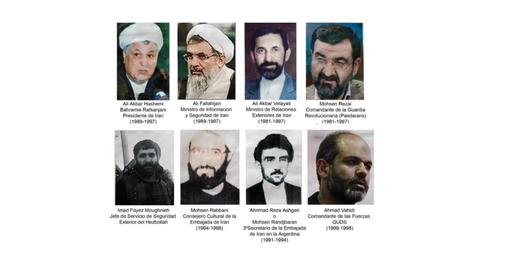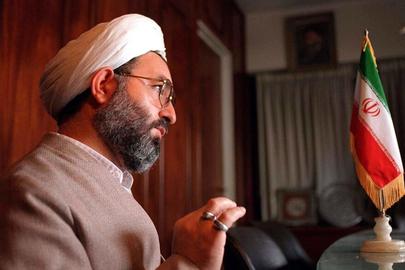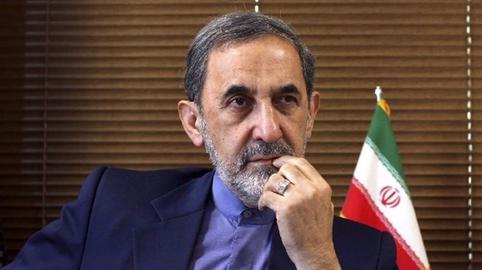The Islamic Republic of Iran is a singular political system in many respects. Over the past 42 years, a considerable number of its officials have faced criminal charges in other countries. What other country’s accredited diplomats have been convicted in a foreign court of law for planning a bomb attack? In what other country are citizens fighting to hold their own head of state and president accountable for shooting down a civilian passenger plane?
Time and again, Iranian officials have sought either to justify these acts of criminality, or to portray them as a “holy” endeavor: one enacted in the name of preserving Islam and the Islamic state. In this series of articles, entitled Holy Terror, IranWire reviews the characteristics of this astonishing pattern of behavior over the decades.
***
Were a sinister global competition held tomorrow over which country had seen the most agents charged or put on trial overseas, the Islamic Republic would win hands down. It is hardly unusual for diplomats to be accused of spying in other countries. But Iranian officials and individuals associated with them have often been arrested in connection with terrorist activities and murder.
Agents of the Islamic Republic or their suspected accomplices have faced accusations of criminality on almost every continent, from neighbouring countries such as Saudi Arabia, Kuwait, Bahrain and Azerbaijan, to France, Germany and Belgium in Europe, to Argentina in Latin America, Thailand in Asia and, recently, Ethiopia in Africa. Most individuals linked to the Islamic Republic who have been put on trial overseas were charged with collaborating in some way with the Islamic Revolutionary Guard Corps.
In Bahrain, a Shia-majority country ruled by the Sunni minority, the Islamic Republic has had little success in cultivating sympathetic Shia groups similar to Hezbollah in Lebanon or the militant outfits in Iraq and Syria. Meanwhile, Bahrain has arrested and punished dozens of people on charges of working with the IRGC and trying to overthrow the ruling Al Khalifa dynasty.
The situation is much the same in Kuwait and Saudi Arabia. Meanwhile, the governments of the UAE, Qatar and Oman, three Gulf Cooperation Council states that have relatively less tense relations with the Islamic Republic, have so far not ventured beyond expelling Iranian suspects. In the 1990s, Sultan Qaboos bin Said, the late King of Oman, asked then-President Akbar Hashemi Rafsanjani to recall a diplomat of his who had been planning to assassinate a foreign guest of the Omani government, rather than arrest the man outright.
Turkey Takes a Tougher Stand
Until February 2021, Turkey was another country that generally expelled Iranian operatives thought to be involved in serious crime. But last month, in a break with long-established protocol, Turkish authorities arrested a member of the Iranian consulate in Istanbul.
Manouchehr Mottaki, Iran’s ambassador to Ankara between 1985 and 1989 and later foreign minister under President Ahmadinejad, was previously expelled from Turkey for his role in planning the kidnappings and assassinations of Iranian opposition figures. But on February 10 this year, Turkey arrested consulate staffer Mohammad Reza Naserzadeh for providing a forged passport for Ali Esfanjani, one of the suspects in the November 2019 gangland-style killing of Masoud Molavi Vardanjani: a vocal critic of the Islamic Republic’s regime who had helped run a dissident Telegram channel called "Black Box".
If Turkey puts this Iranian consulate employee on trial, it will mean that, like Belgium, it has finally done away with its usual response of expelling “undesirable elements” deployed within its borders by the Islamic Republic. Earlier in February, for the first time in the 42-year history of the Islamic Republic, Belgium sentenced a senior Iranian diplomat, Asadollah Asadi, to 20 years in prison for plotting to bomb an Iranian opposition event near Paris in June 2018.
In years gone by, Germany and France have also tried and imprisoned individuals affiliated with the Islamic Republic for murder, including the 1991 assassination of Shapur Bakhtiar, the last Iranian prime minister before the 1979 Islamic Revolution, and the machine-gunning of a group of Iranian-Kurdish leaders in Mykonos restaurant in Berlin in 1992.
None of these individuals were formally-recognized agents of the Islamic Republic. But they have received a hero’s welcome from Iranian officials on returning to the country. In 2007, Kazem Darabi, one of those charged with the Mykonos murders, was greeted by senior Foreign Ministry officials in person upon his return to Iran. And in 2010, Ali Vakili Rad, one of the assassins of Shapour Bakhtiar, was received by a deputy foreign minister and draped with garlands at Tehran’s Imam Khomeini Airport.
German Court Charges Khamenei with an Act of Terror
In 1997, during the Mykonos trials, Ayatollah Khamenei and the then-President Hashemi Rafsanjani were directly accused of ordering and approving the killings. The trials lasted a total of three years and included testimonies from 166 witnesses. At the close, the presiding judge ruled that the killings of the four dissidents at Mykonos had been orchestrated by a secretive ''Committee for Special Operations'' in Tehran, whose members had included the Supreme Leader, the president, the foreign minister and senior security officials.
While the judgement did not identify the top-level officials by name, German federal prosecutors explicitly named the Supreme Leader and the president as responsible for this act of terror.
Following the trial, various European Union member states recalled their ambassadors from Tehran. None returned until after Hashemi Rafsanjani was succeeded by Mohammad Khatami as president. The first country to recall its ambassador was Germany and, in response, Ayatollah Khamenei announced that the German ambassador could not return to Tehran until all the other European Union ambassadors were back in place.
In July 1994, just two years after the Mykonos killings, a Jewish center in the Argentinian capital of Buenos Aires called AMIA (the Argentine Israelite Mutual Association) was destroyed in a suicide van bomb attack that left 85 Argentinians dead and hundreds injured. It was the bloodiest terror attack in the history of Latin America and the deadliest attack on a Jewish community since the foundation of Israel.
Iranian Officials on Interpol’s Arrest List
Argentine prosecutors later announced that the AMIA bombing had been planned in Iran and carried out by the Lebanese Hezbollah. In 2006, a federal judge in Argentina asked Interpol to arrest ex-president Hashemi Rafsanjani, former information minister Ali Fallahian and former foreign minister Ali Akbar Velayati, as well as one-time IRGC commander Mohsen Rezaei and other ex-officials for “crimes against humanity”.
“With regard to the explosion in Israel,” Hashemi Rafsanjani wrote in his diary on August 11, 1994, “it is strange that the Zionist and imperialist media empire has used a big lie to accuse Iran. They claimed the bomb plot was approved in meetings that the Leader, myself, the foreign minister, the commander of the Revolutionary Guards and others had held in Mashhad. But we never had such a meeting in Mashhad and we knew nothing about the plan.”
In 1996 both Rafsanjani and Velayati enjoyed diplomatic immunity. But this ended a year later with the end of Rafsanjani’s second term as president. An international warrant had been issued for their arrest, and as such, after Rafsanjani’s tenure ended neither one traveled to any country where they might be apprehended. Rafsanjani remained on Interpol’s wanted list until his death in 2017.
Close to 30 years later, Iranian media recently reported that Velayati, now an advisor to the Supreme Leader, was planning to visit Azerbaijan. The reports came amid speculation that Interpol might close in on Velayati while he was abroad. In the end, the trip to Azerbaijan did not take place – at least, not publicly.
At the time of the AMIA bombing, a man named Hadi Soleimanpour had been the Iranian ambassador to Argentina. Nine years later in 2003, he was arrested in Britain on the request of the Argentine authorities while studying for a degree at Durham University. Soleimanpour was not on Interpol’s list, but the Argentine judge pursuing the case sent some 2,500 pages of evidence to London to back the request.
In the end Soleimanpour was released on bail of US$1.2 million, which was in paid in part by the Islamic Republic. He later returned to Iran, at the close an incident that had served as a stark warning to Iranian officials of what they could expect if they ventured outside of the country.
Besides Velayati, other Iranian officials on Interpol’s list include Ali Fallahian, the intelligence minister under Hashemi Rafsanjani, Mohsen Rezaei, ex-commander of the Revolutionary Guards and a current secretary of the Expediency Council, Ahmadreza Asghari, third secretary of the Iranian embassy in Argentina at the time of the AMIA bombing, Hojatoleslam Mohsen Rabbani, the Islamic Republic’s former cultural attaché in Argentina, and General Ahmad Vahidi, then-commander of the IRGC’s expeditionary Quds Force and the minister of defense under Mahmoud Ahmadinejad.Fearing arrest, none of these officials have traveled outside of Iran in the past three decades.
A final name formerly on Interpol’s wanted list in connection with the AMIA attack was that of Imad Mughniyeh, a founding member of Lebanon's Islamic Jihad Organization and number two in Hezbollah's leadership chain, who was assassinated in Syria in 2008 in a joint operation by the CIA and Mossad, the Israeli intelligence agency.
The notoriety that the Mykonos killings and the AMIA bombing had bestowed on the Iranian regime did not stop similar attempted attacks by the Islamic Republic in the decades since then. A considerable number of Iranian terror suspects and their accomplices have been arrested since, in countries from Thailand to Ethiopia to the United States.
In 2013, Mansour Arbabsiar, an Iranian-American used-car salesman in Texas, confessed to plotting to kill Adel al-Jubeir, the Saudi ambassador to the United States, and was sentenced to 25 years in prison. It was reported that Arbabsiar was close to Abdolreza Shahlai, a commander of the Revolutionary Guards’ Quds Force who plays a pivotal role in supporting Houthi rebels in Yemen.
African Operations
In February this year, 215 Ethiopian authorities arrested 15 people and charged them with attempting to blow up the embassy of the United Arab Emirates in the capital, Addis Ababa. A 16th individual by the name of Ahmed Ismail was picked up in Sweden.
According to American and Israeli sources, the would-be bombing operation had been masterminded by Iran, whose intelligence service activated a sleeper cell in Addis Ababa the previous autumn with additional orders to gather intelligence on the embassies of the United States and Israel. These sources said that the Ethiopian operation was part of a wider drive to seek soft targets in African countries where Iran might avenge painful, high-profile losses, such as the death of Mohsen Fakhrizadeh, Iran’s top nuclear scientist, who is said to have been killed by Israel in November 2020, and General Ghasem Soleimani, commander of the Quds Force, killed in January 2020 by an American drone outside Baghdad.
Back on 2013, a Kenyan court had convicted two Iranian nationals of being agents of the Quds Force and plotting attacks against Western targets in Kenya, and both were sentenced to life in prison. That sentence was reduced on appeal to 15 years’ imprisonment. In 2016, two other Iranians were charged with planning to attack the Israeli embassy in Nairobi, but these agents were expelled from the country after a deal was reached with the Iranian embassy.
On January 29, a small bomb was detonated near the Israeli embassy in New Delhi. India’s central counterterrorism agencies later concluded that the Quds Force was behind the terror plot but that the bomb itself had been planted by a local Indian Shia cell. The case remains unsolved.
The explosion in Buenos Aires and the Mykonos killings appear to have been the last of their kind in terms of scope and brazenness. But they opened the door to the prosecution of some of the highest officials of the Islamic Republic in connection with terrorist activities both before and since then.
Related coverage:
Iran’s Intelligence Ministry has a History of Terrorism in Europe
Iran Hires Criminals and Drug Dealers to Kidnap Its Opponents
Diplomat Assassins: Who Does Iran Kill Abroad and Why?
Abductions and Murder Through Embassies: The Islamic Republic's Terrorism Abroad
Iranian Diplomats Linked to Assassinations in US State Department Report
High Ranking Iranian Official Threatens Iranian Journalists in the Diaspora
Did Iran Break International Law by Kidnapping a Dissident Journalist?
How the Revolutionary Guards Wrecked Iran’s Diplomatic Immunity in the US
Unprecedented Remarks by an Iranian Diplomat about Terrorist “Rogue” Elements in Europe
visit the accountability section
In this section of Iran Wire, you can contact the officials and launch your campaign for various problems




























comments